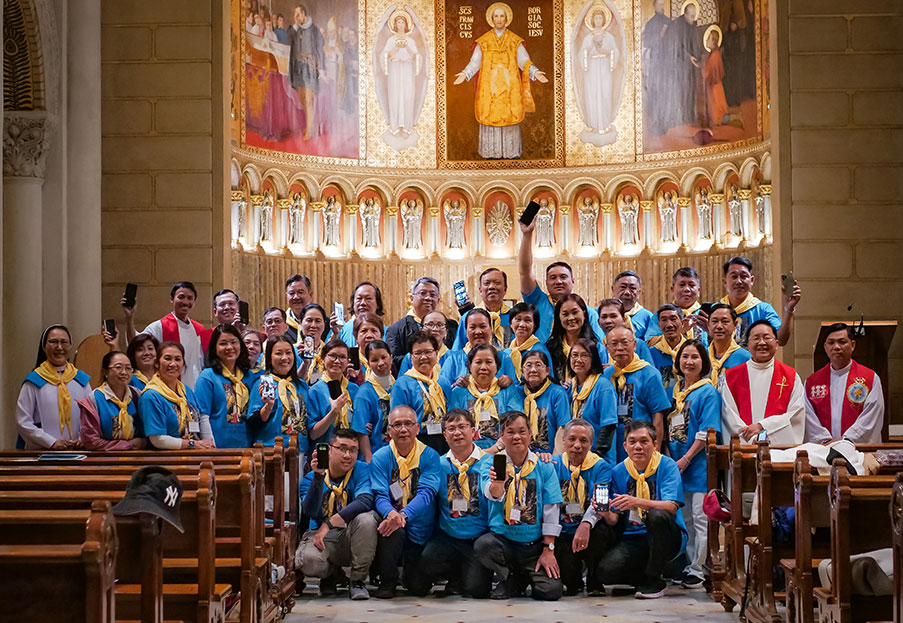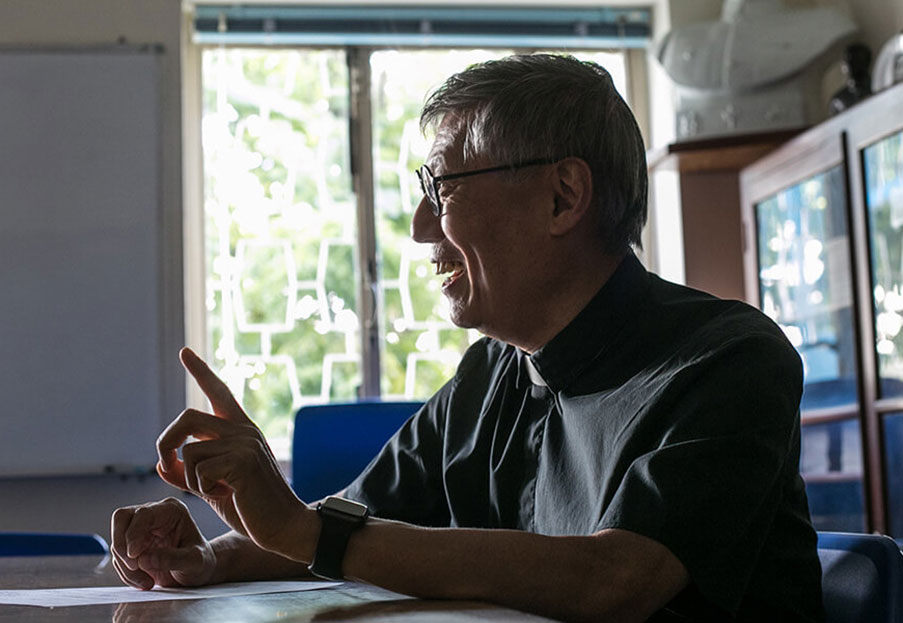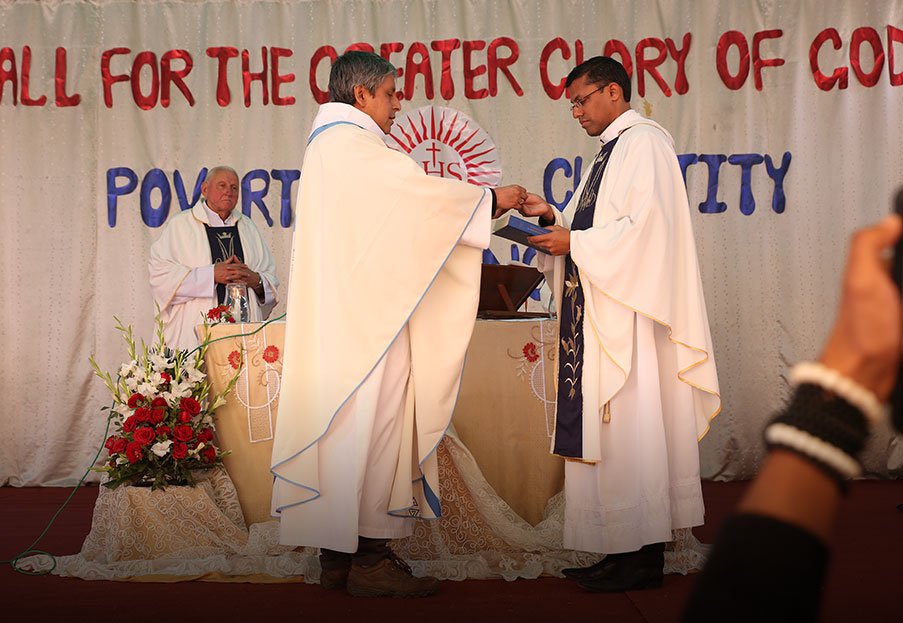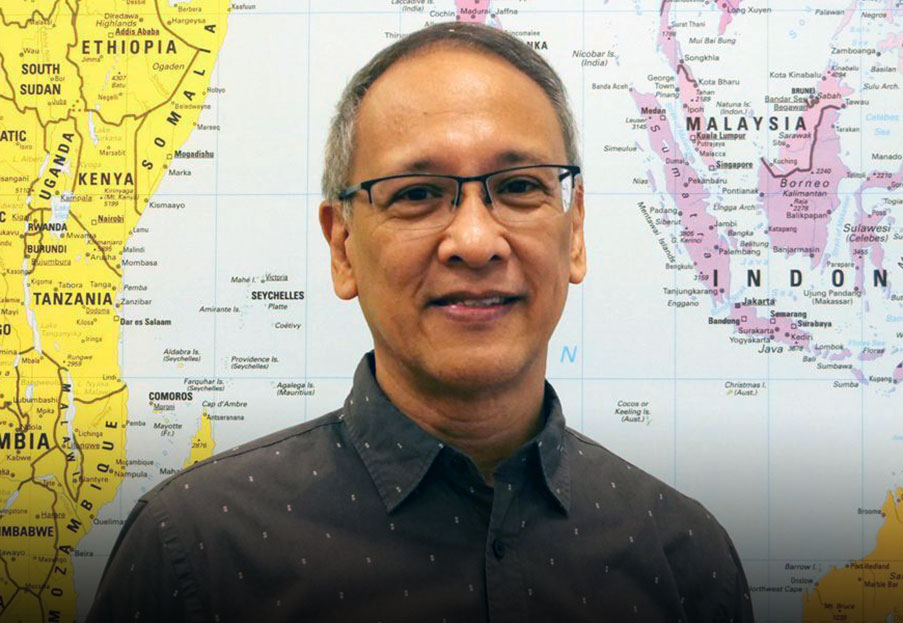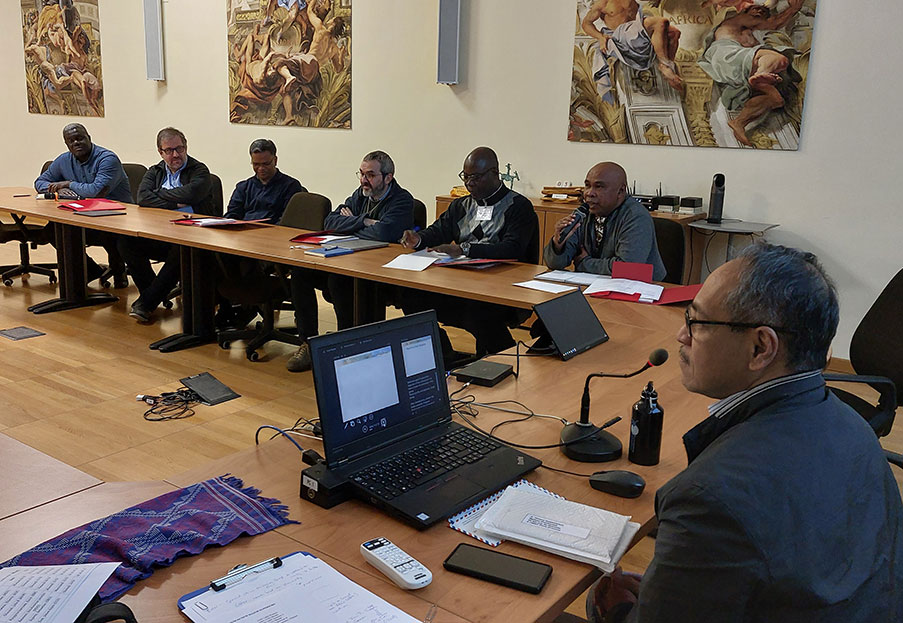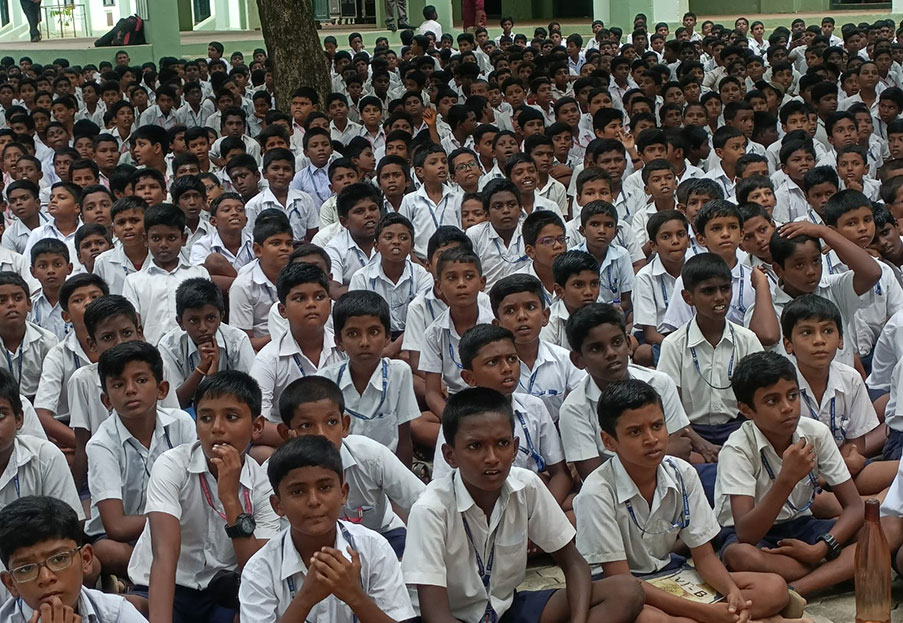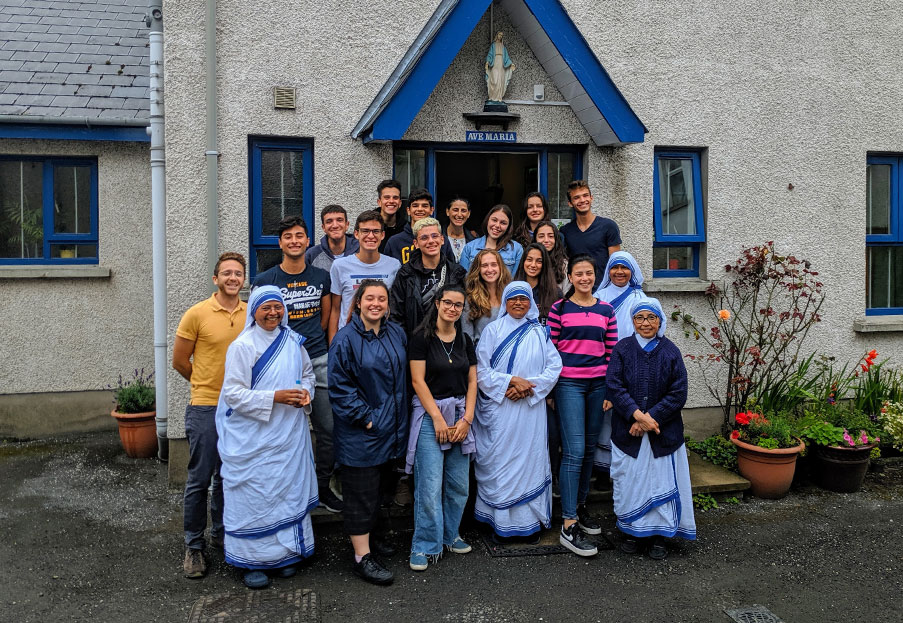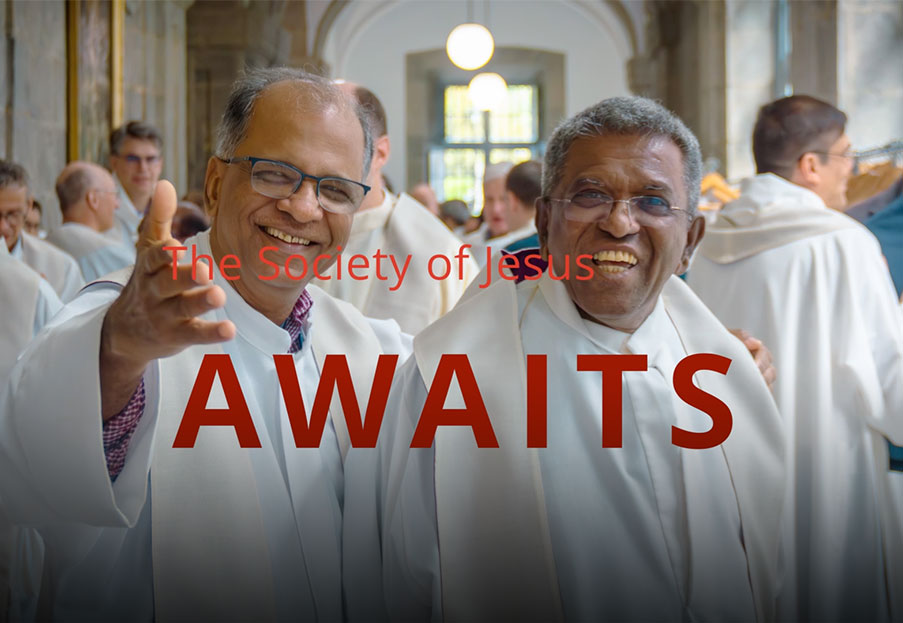Navigating beyond boundaries
Communication Team - Province of Indonesia
[From “Jesuits 2022 - The
Society of Jesus in the world”]
Delivering good-quality education to those “on the other shore” of the digital world.
Imagine how St. Francis Xavier and other European missionaries back in the day established communication with local inhabitants. It must have been messy and confusing in a foreign language. How does meaningful interaction happen in such circumstances? How did they convey the abstract concept of Christian faith to the local people, and how did they adapt it to the local culture?
In his novel, Mataram: A Novel of Love, Faith, and Power in Early Java, historian
Anthony Reid describes the love story, set in 16th-century Java,
between a British crew member and a Javanese woman. Java had been acquainted
with traders from Arabia, Portugal, the Netherlands, and China. While Hinduism
and Buddhism were still dominant, Islam had begun to attract many, gaining the
trust of the people. Christianity was still in the early stages of its
introduction. To this, Reid adds the political rivalries of the palace, with
the characters of the novel involved in overwhelming interaction. Sri, the
Javanese woman, and Thomas, the British crew member, encounter each other
holding on to their own baggage. It is Sri who navigates the barriers of
language, culture, ideology, and history. Courageously, she bridges the
differences, reaching mutual understanding and maintaining the diversity in
their lives. Thomas can see beyond his British comfort zone.
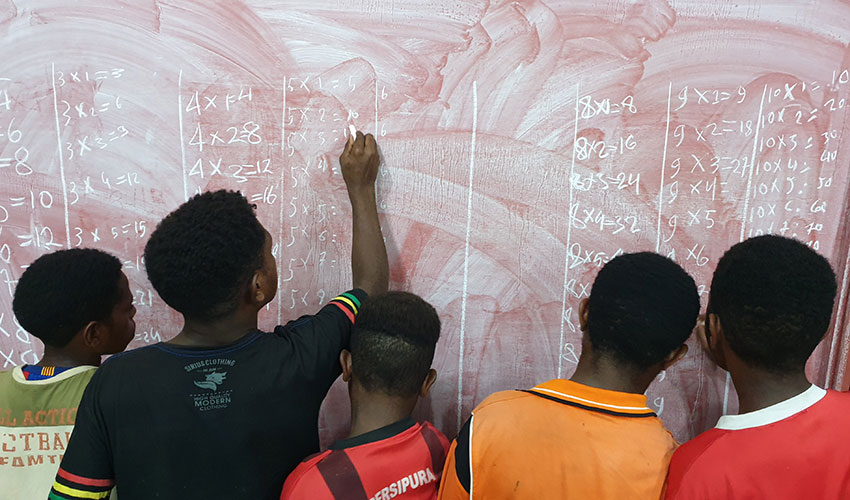
Students learning to count.
Refugees and citizens
Elizabeth Maria Quendangen, a volunteer for the Jesuit Refugee Service Indonesia in Bogor, experienced that same puzzling but enriching interaction in this day and age. She is an Indonesian language teacher for refugees from Afghanistan, Iraq, Iran, Sudan, Somalia, Ethiopia, Congo, and Eritrea, with some of them lacking English language skills. Then she met Bashir Sakhizada, an Afghan refugee, who speaks Indonesian after living in Bogor for some years. He helps Elizabeth teach the Indonesian language to his fellow refugees.
“I’ve learned a lot from them, their
customs, culture, the way they think and tell stories about their life in
their home country,” says Elizabeth. Knowledge of basic Indonesian is necessary
for the refugees in their interaction with the locals. The children master the
language faster than the adults, despite uneasy interaction with the local
Indonesian children. Little by little, they are able to easily move beyond
borders and live together as fellow citizens of the world.
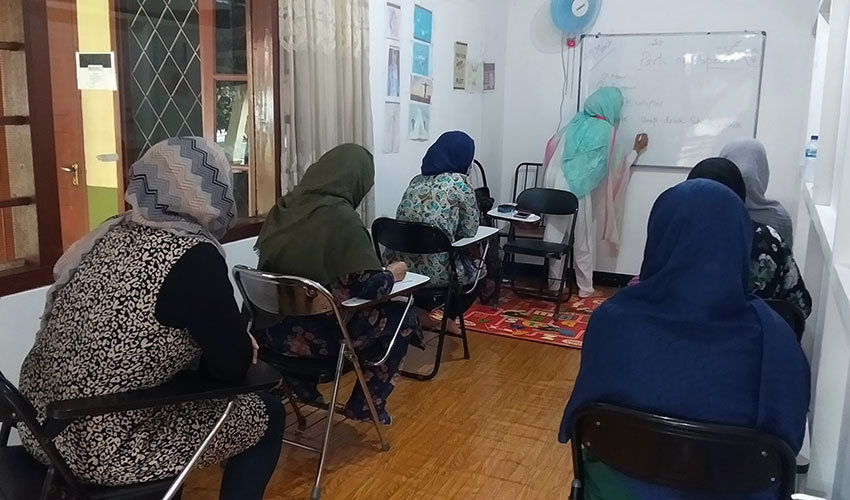
A class of refugees.
Far, remote, and secluded
Reliansius Pasangka, a volunteer with Jesuit Service for Papua, experiences the creative cultural interaction with his students from Public Middle School No. 1 of Tigi, Waghete, a small town in an inland mountainous area. Due to the influence of local language, the Indonesian language has several different dialects. Rely is aware of this different dialect he speaks with his students and had to take this into account to help them. They cannot write and read in Indonesian, not even do basic counting. The teachers rarely come to teach in this remote area, and the students do not learn much. The problem of access for remote areas contributes to this unresolved issue.
Bonaventura Jaqlin and Franki Dogopia are two of
Rely’s students. They are happy and enjoy Rely’s way of teaching. They want to
be teachers. Rely supports his students with additional lessons after school
and uses a projector to show the world outside mountainous Waghete. “Although
I’m sick and tired, I want to be with them and to be the answer to their needs.
I am proud of being with them when the others quit,” he says. He believes that
the remote location should not prevent the students from dreaming big and
having open minds.
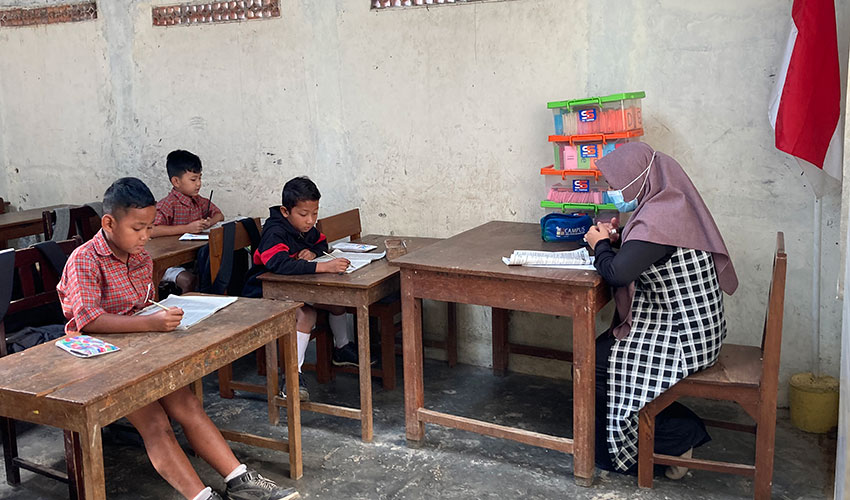
Remote area class.
Pandemic and poverty barriers
The pandemic caused chaos and disruption in the learning process of students in the Catholic Primary School of Kaliwinong, Central Java. The school is run by Kanisius Educational Foundation, entrusted to the Indonesian Jesuit Province. Teachers, students, and parents are confused with online learning. In this poor rural area, most parents cannot afford smartphones and internet plans for their children’s online classes. Teachers have to navigate skillfully between poverty and the needs of their students. They send the learning material to the students’ houses. Then they give their lessons online for those who have internet access. The next day, they pick up the homework from all and can give additional help to those who were not online. Despite the pandemic and shortage of online learning facilities, the teachers are not deterred from providing quality education. In fact, they are more determined to take a more personal interest in the education of their students.
The mission of the Society of Jesus for justice
and reconciliation asks us to see with fresh eyes the learning process as a
cultural encounter between individuals for a common just good. Elizabeth is
aware of the injustice and suffering of her refugee students. Rely is aware of
the unequal access for students and teachers in remote areas. Confusion and
poverty can limit online learning. Despite all this, their encounters are a
journey of navigating differences and going beyond boundaries to reach a common
goal - as citizens of the world and a people of God.
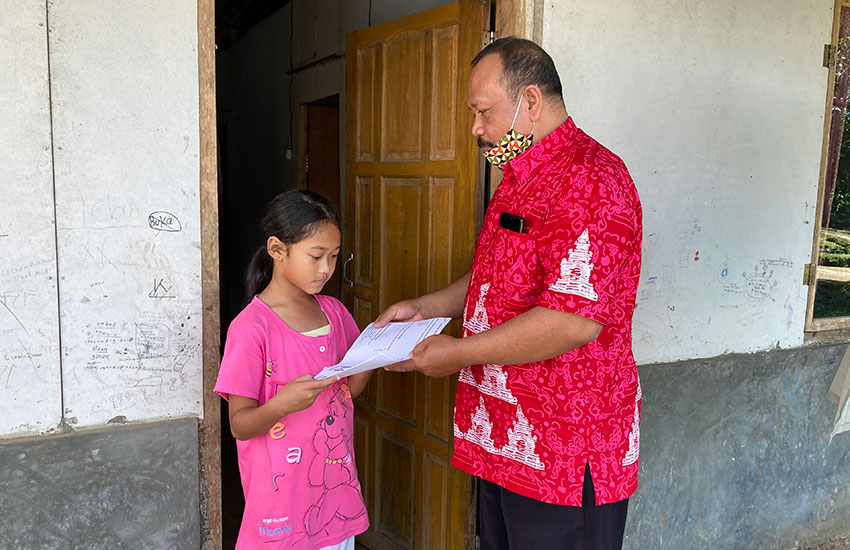
Home visit during the pandemic.
